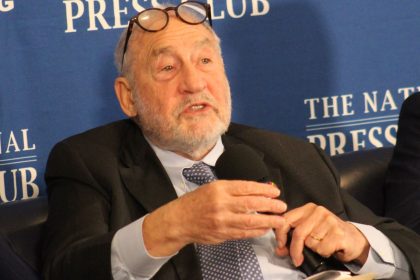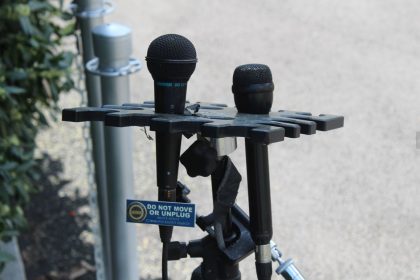Diversity Groups Push for Revival of Minority Tax Program

Seven diversity organizations have joined the call for Congress to revive a tax certificate program intended to encourage minority and women ownership of broadcast stations.
Rep. G.K. Butterfield, D-N.C., and Sen. Gary Peters, D-Mich., introduced the bill to reestablish the Minority Tax Certificate Program at the Federal Communications Commission during the last Congress.
Last week, Butterfield revived the effort when he and Rep. Steven Horsford, D-Nev., introduced the Expanding Broadcast Opportunities Act of 2021.
Sens. Gary Peters and Bob Menendez, D-N.J., are sponsoring the companion bill in the Senate.
In a letter to the congressional leadership, the organizations say “supporting these pieces of legislation would eliminate barriers and create new opportunities for women, people of color and socially disadvantaged individuals to own local TV and radio stations.”
Established in 1978, the minority tax certificate was designed to provide broadcasters with an economic incentive to sell their stations to minority owners.
Rather than directly subsidizing the potential owners, the certificate instead gave a tax break to sellers that incentivized them to sell to the minority-owned business even if there were multiple bidders for their properties.
If the seller sold to a minority-owned business, the seller could take the proceeds from the sale and roll those proceeds over into a new media property without recognizing the taxable gain from the sale.
Unlike the typical like-kind exchange where the roll-over into a new property has to proceed within a few months of the sale, the tax certificate treated the sale as an involuntary sale (like the sale of a property because of a government’s exercise of eminent domain) under Section 1033 of the tax code, giving the seller several years to roll the proceeds over into a new purchase.
At that point, the new property would have the same tax basis as the old – meaning that no gain would be recognized until the sale of the new property.
This spurred many sales to minority companies by broadcasters looking not to get out of the business, but instead looking to realign their holdings or to move up into larger markets. Several hundred radio and TV stations were purchased under this program in the last 20 years of the program’s existence.
The letter writers argue that the program was an extraordinarily “effective mechanism for bringing more people of color into station ownership,” increasing minority ownership by 550%.
Despite this success, the program had its critics, some of whom questioned the constitutionality of racial set asides, while others asserted it quickly became a vehicle for gaming the tax system.
These concerns came to a head in early 1995, when Viacom Inc. agreed to sell its cable television systems for $2.3 billion to a minority-led investor group, in a deal in which Viacom stood to save $400 million to $500 million in federal taxes.
The buyer of the Viacom systems is a partnership headed by Frank Washington, a black attorney and entrepreneur from California who helped develop the FCC program in 1978 while he was an official in the Carter administration.
Washington’s co-investors in the Viacom systems include InterMedia Partners, a San Francisco-based cable company, and Tele-Communications Inc., the nation’s largest cable operator.
Though he insisted he wasn’t singling out Viacom or Washington, Rep. Bill Archer, R-Texas, the conservative chairman of the House Ways and Means Committee, immediately scheduled hearings to review the program.
Within weeks, both the House and Senate had voted to repeal the program.
The pending bills would establish limits on the program to overcome some of the objections that existed to the program in the last century.
To overcome some of the constitutional objections, the bill applies to all “socially-disadvantaged individuals” – not just to businesses that are minority-owned.
To overcome the concerns about this program being exploited by big businesses that don’t need government assistance, the program proposes to cap the size of the sale that could take advantage of the certificate – a cap somewhere between $10 million and $50 million, as decided by the FCC after a rulemaking.
The bill also requires that socially-disadvantaged individuals be involved in the management of the stations acquired, and that the properties be held for at least three years to avoid the purchased stations quickly being turned over to non-qualifying businesses.
The letter was signed by the Multicultural Media, Telecom & Internet Council, the National Association of Black Owned Broadcasters, the League of United Latin American Citizens, the Hispanic Federation, the National Urban League, the U.S. Black Chambers and Asian Americans Advancing Justice.























